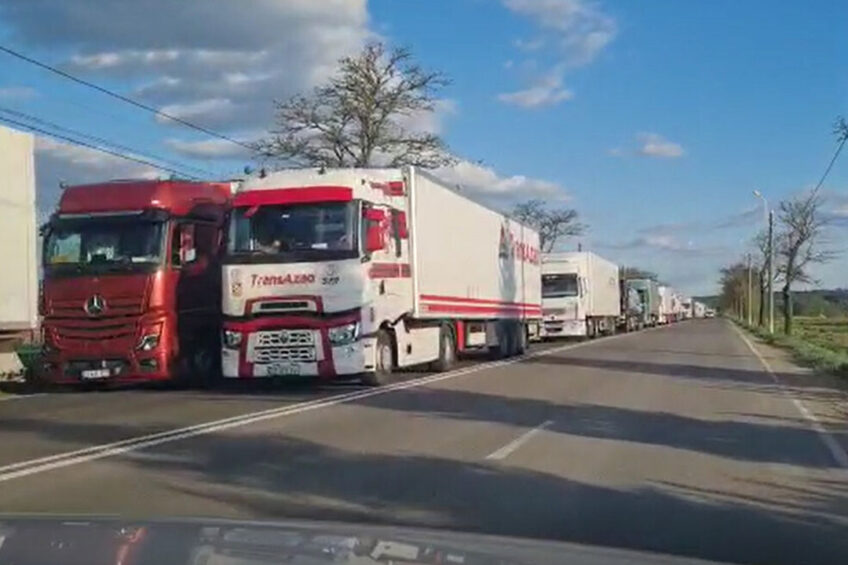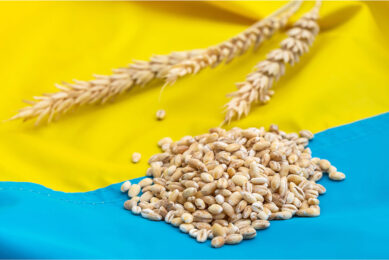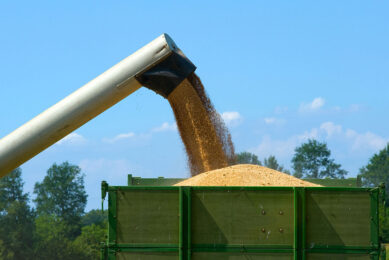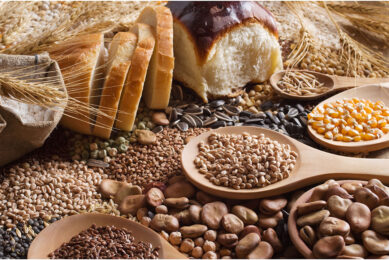Trucks filled with grain stranded for days at Ukraine border

Ukrainian farmers are desperate to transport tonnes of last year’s grain harvest into Europe by road but their trucks are getting stuck at the borders with Poland and Romania for days.
Shipping channels closed
As the shipping ports in Ukraine are closed there are many ships, some full of grain, that cannot transport the goods to where they are needed.
Crew gone to war
The ships’ crews are gone, some even to fight the Russian forces, and there are many mines in the sea preventing any shipping to be carried out in the near future.
Shipping insurance unlikely
Even if the ships are ready to go, they have to wait to obtain permission from their insurance companies before travelling and that is very unlikely given the circumstances.
Need to free space in grain storage bins
Therefore farmers have been sending their grain in trucks to Europe to try and get some cashflow going. They are also desperate to clean out their bins to have enough storage space for this year’s harvest.
An Ukrainian farmer’s view point
Crops and livestock farmer Kees Huizinga, farms 15,000 hectares at Cherkasy, 200 kms south of Kyiv, with his 2 business partners.
The farm is home to 2,000 dairy cows, 450 sows, and grows crops for export, including wheat, corn and sunflowers and there also is 350 hectares of vegetables with drip irrigation.
People across the world are going to starve if we cannot get Ukrainian grain to them yet our trucks are being held up due to paperwork…
Bureaucracy holding up progress
With the ports closed Kees has resorted to sending his 3 trucks loaded with corn across the road border into Romania, but thanks to heavy bureaucracy the drivers are having to wait days to cross.
“As well as waiting 5 and more days in the queue to get out of Ukraine into Romania, they have to wait days at the border on the other side to return home,” said Kees.
Green corridors needed
“The situation is crazy. People across the world are going to starve if we cannot get Ukrainian grain to them yet our trucks are being held up due to paperwork, some of which is not even essential.
“I have driven past the queues myself just to see what is going on. There are 25kms of trucks on the Ukraine side waiting to cross into Poland and the drivers are waiting 5 to 6 days there.
“If farmers start moving larger volumes of grain towards Poland then these queues will easily reach 100kms long.
“I am calling for green corridors to be established to allow our grain to move freely and quickly to our customers and drop this bureaucracy that is holding us back,” he said.
A truck drivers view point
Truck driver Andriy, who works for Kees, has made only a few crossings during the past month spending most of his time sitting at the border with a full load of grain.
“It really is frustrating,” said Kees. “We need this grain to run freely. Andriy also sat an additional day at the Romanian border post because they were demanding an extra document from a veterinary inspector.
“This is the fourth time during the past 30 days that Andriy has delivered corn to Romania, and they never asked for that document before.
“In a few weeks’ time farmers in Romania, as well as other countries, will start harvesting their grain. If this mess is not sorted out their logistics will not be able to handle additional Ukrainian crops on top of their own,” said Kees.
…unless we solve this problem today, we face the spectre of global food shortage in the coming months.
Global food crisis
Meanwhile the UN has said Russia’s invasion of Ukraine could cause a global food crisis that may last for years.
UN Secretary-General Antonio Guterres said the war had worsened food insecurity in poorer nations due to rising prices and added some countries could face long-term famines if Ukraine’s exports are not restored to pre-war levels.
Mr Guterres said the conflict combined with parameters such as climate change “threatens to tip tens of millions of people over the edge into food insecurity followed by malnutrition, mass hunger and famine.”
He said: “There is enough food in our world now if we act together. But unless we solve this problem today, we face the spectre of global food shortage in the coming months.”
Prior to the war, Ukraine was seen as the world’s bread basket, exporting 4.5 million tonnes of agricultural produce per month through its ports.











